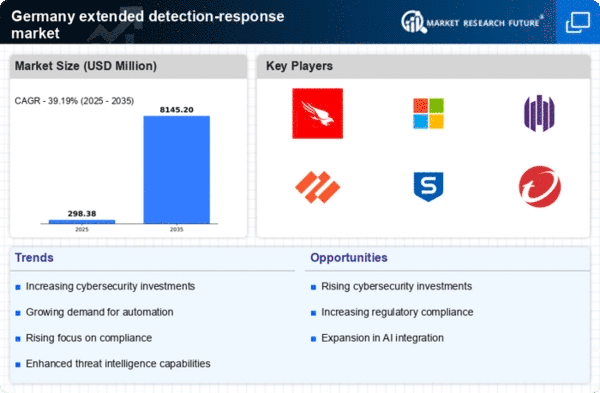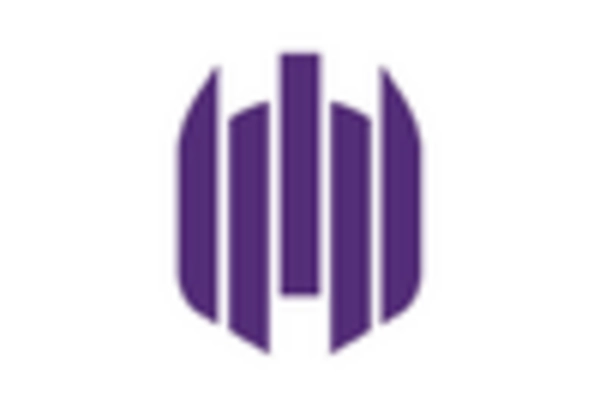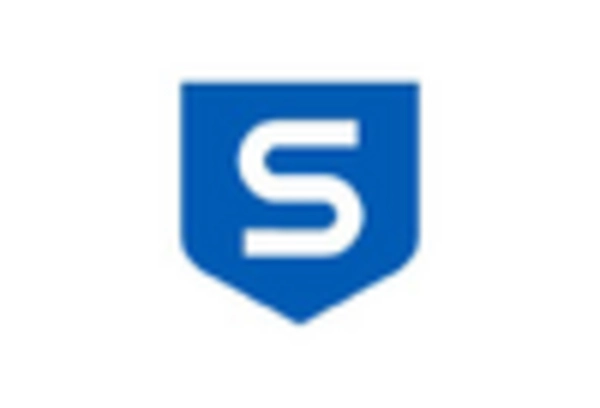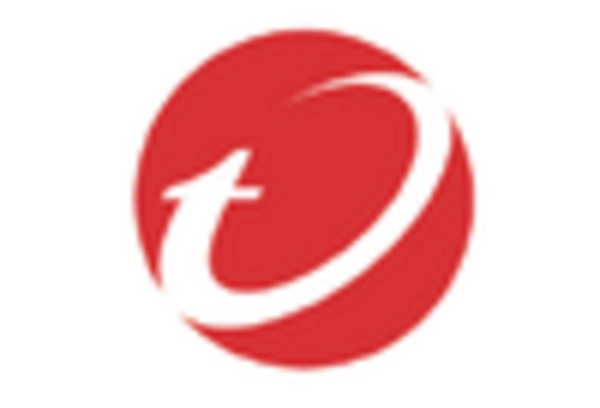Rising Cybersecurity Threats
Due to the increasing frequency and sophistication of cyber threats in Germany.. Organizations are facing a surge in ransomware attacks, phishing schemes, and data breaches, which necessitate advanced security solutions. In 2025, it is estimated that cybercrime could cost the German economy over €200 billion annually. This alarming trend compels businesses to invest in extended detection-response solutions to enhance their security posture. The need for comprehensive threat detection and response capabilities is paramount, as traditional security measures often fall short in addressing modern threats. Consequently, Organizations seek to mitigate risks and protect sensitive data..
Growing Regulatory Requirements
Increasing regulatory requirements imposed on organizations in Germany shape the market.. Compliance with data protection regulations, such as the General Data Protection Regulation (GDPR), necessitates the implementation of comprehensive security measures. Organizations are required to demonstrate their ability to detect and respond to security incidents effectively. This regulatory landscape is driving the demand for extended detection-response solutions, as businesses seek to ensure compliance while protecting sensitive data. Failure to comply with these regulations can result in substantial fines, further incentivizing organizations to invest in advanced security measures. As regulatory scrutiny intensifies, the extended detection-response market is expected to grow in response to these compliance challenges.
Increased Investment in IT Security
The extended detection-response market is bolstered by a marked increase in investment in IT security across various sectors in Germany. Organizations are allocating larger portions of their budgets to cybersecurity, with spending expected to reach €10 billion by 2026. This trend reflects a growing recognition of the importance of robust security measures in safeguarding sensitive information and maintaining customer trust. As businesses face mounting pressure to protect against cyber threats, the demand for extended detection-response solutions is likely to rise. This investment trend not only enhances the capabilities of security teams but also drives innovation within the extended detection-response market, fostering the development of more sophisticated tools and services.
Shift Towards Remote Work Environments
The ongoing shift towards remote work environments in Germany influences the market.. As organizations adapt to flexible work arrangements, the attack surface for cyber threats expands, necessitating enhanced security measures. Remote work has led to an increase in the use of personal devices and unsecured networks, which can expose organizations to greater risks. Consequently, businesses are increasingly turning to extended detection-response solutions to secure their remote operations. This trend is likely to drive market growth, as organizations seek to protect their data and maintain operational continuity in a remote work landscape. The extended detection-response market is thus positioned to thrive as companies prioritize security in their evolving work environments.
Technological Advancements in Security Solutions
The extended detection-response market is significantly influenced by rapid technological advancements in security solutions. Innovations in automation, machine learning, and artificial intelligence are transforming how organizations detect and respond to threats. In Germany, the adoption of these technologies is projected to increase by 30% over the next few years, as businesses recognize the need for more efficient and effective security measures. These advancements enable organizations to analyze vast amounts of data in real-time, improving incident response times and reducing the impact of security breaches. As a result, the extended detection-response market is likely to benefit from the growing demand for cutting-edge security technologies that can adapt to evolving threats.
















